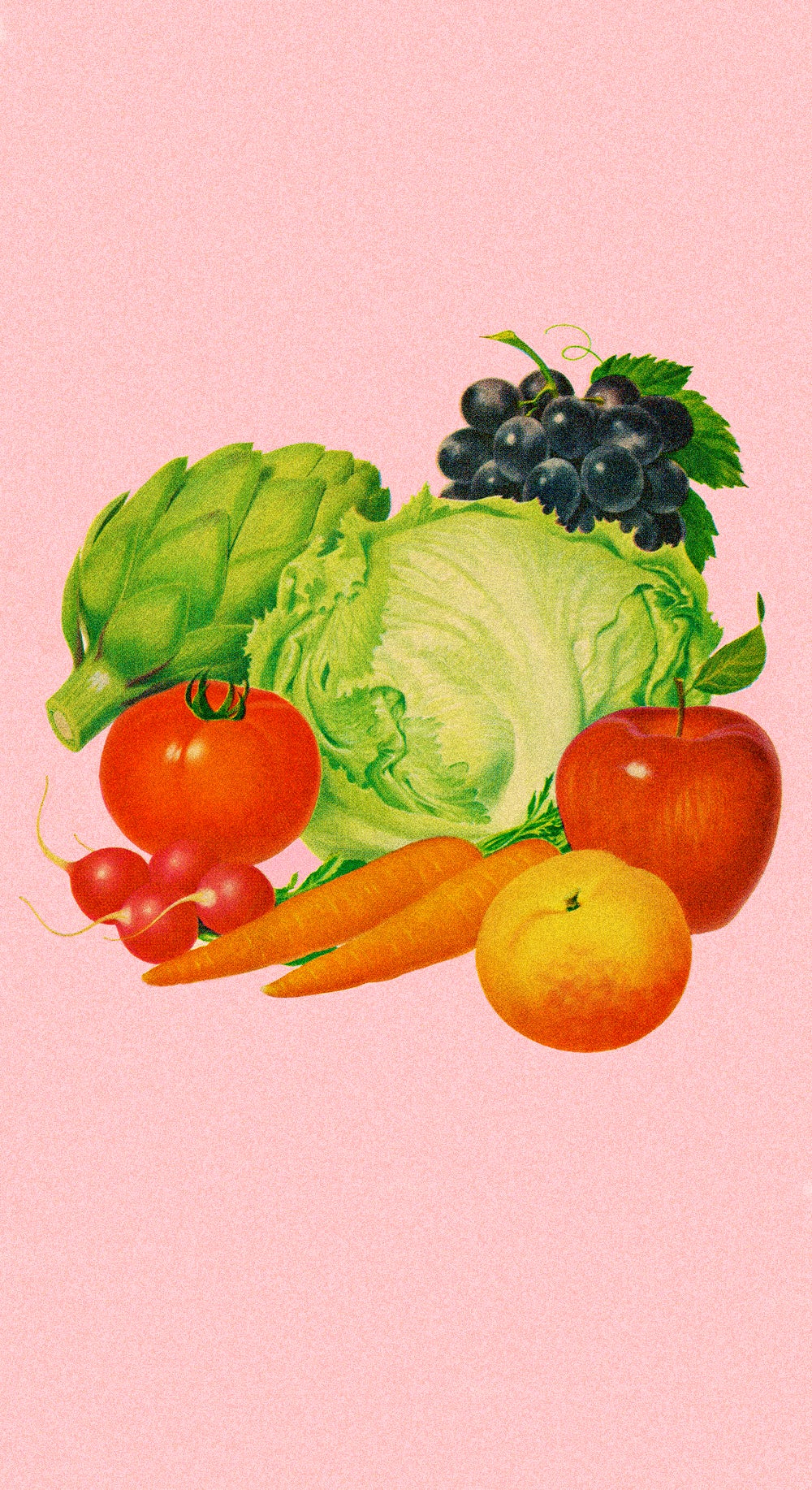
It was the mug of tea that started it. Five days into my second bout of Covid, I realised I no longer liked the hot beverage I had been drinking every day since I was 10 years old. It was the flavour: slightly acrid, with a mildewy aftertaste of distressed milk. Ugh. Then the same thing happened with its immediate replacement, organic lemon cordial. (Syrup of cleaning product. Revolting.) Then it was the back-to-basics option: tapwater. (Faint top notes of sock in school holidays’ swimming pool, with a delicate hint of chemical hormone. Undrinkable.) I sent out for natural mineral water. Anticipating it as if I had just ordered the most expensive wine on the menu, I realised it tasted… a bit strange and minerally.
Food was worse. I had no appetite but tried forcing myself to eat ready meals that were once my basic staples yet are now written off the menu. Farewell forever mac ’n’ cheese. Choccy biscuits, A-list for decades, faced a sudden drop in status – as in “I’m never eating one of those again”. Far too sweet. This really was an unexpected gift from the virus, which was still mounting a heavy armoured assault on my body.
I should say here that me and Covid-19 do not get on. Our first encounter in March 2020 started politely enough – “some low-level infection”, I remember calling it – until it emptied what felt like a bag of wet cement into the bottom of my lungs. They stayed like that for 35 days; the space that could be filled with air constricted, restricting my breathing to the point that on occasions, at night, I would have to go on hands and knees to breathe. After they abruptly cleared, they would intermittently “flood” – that’s how it felt, a leak in the upper walls, the basement filling up, a disaster movie scene of me sucking air up against the ceiling. A week would go by without it happening. “I think, finally – finally! – I’m better,” I would announce to anyone who would listen.
I probably need to say this, too: I did have allergies as a child – dogs, feathers – that brought on a wheezy asthma. This was not that. I would try to exercise. I bought a Garmin watch to keep an eye on my oxygen levels, and it started telling me an alarming new story: my heart rate was doing weird things. On a stroll to the park, it might rise rapidly: 130, 140, 150, 170 beats per minute. I could be standing still in the street watching my heart race up to 178bpm. When I tried to run – slowly, slowly – it would accelerate before I had gone 50 yards. On one occasion, on the gentlest of jogs, it went up to 220bpm. (I’m light, have never smoked, am super sporty. My normal resting heart rate is about 45.)
“Maybe the watch is not working properly,” people would say. I went to the doctor. I remember sitting in the waiting room, panicking because I couldn’t get enough air with a mask on. (I know, I know; that’s how it was for me.) I had a chest X-ray. “Your heart and lungs look fine.” Covid and I settled into a long wave motion: seven days of flood, seven days of calm, sometimes lengthening to a fortnight. (Me: “I think, finally – finally! – I’m better.” Covid: “You’re not.”)
It did go away, pretty much, after about 18 months. But this time, in June, almost from the moment I tested positive, it felt like my whole system was operating a “do not let Covid into your respiratory tract” policy. I know that is quackery, but as similarly stricken friends complained of “in-the-trenches” coughs, I was dealing with nausea and shooting pains around my ribs and internal organs that were so strong I needed painkillers to sleep. My back felt like it had been whipped. Not that I’ve ever been whipped, but I couldn’t lie on it. Not a cough, not a tickle, though. And, of course, my startling new sense of taste.
One does occasionally come across individuals who have this amazingly rich olfactory world... There are individuals who have a much richer smell world
I know people who have experienced loss of taste or smell after getting Covid that has persisted ever since. It’s called anosmia. But this clearly wasn’t that. As a dedicated internet self-diagnoser, I soon found my way to articles about parosmia – a disorder that alters the perception of smell. There was a piece in The New York Times: “Distorted, Bizarre Food Smells Haunt Covid Survivors”. A Facebook Covid anosmia/parosmia support group has almost 50,000 members, experiencing complete loss of taste or revulsion at everything from mayonnaise to coffee. But as my feelings of nausea receded, I realised that this wasn’t exactly parosmia either. A surprising dimension was creeping into my awareness. In my continuing search for moderately pleasant liquids to drink, I had begun squeezing fresh oranges and grapefruits. The result was a carnival ride of flavour; rushes of citrus ricocheting around my mouth, then swooping dips of bitterness at the back of my tongue. Incredible. Ripe black cherries exploded with a rich, dark sweetness. Tomatoes were attention-grabbing ram-raiders. It felt like I was experiencing a hard reset of my whole perception of taste.
My first trip back to a supermarket would have shamed a medieval ascetic. I think two items that I could face eating made it to the self-service tills. (“Someone gets their shopping for free every week in this store…”) But now I felt like an alien, trying everything as if for the first time. Fruit and vegetables were clear winners in this new world – broccoli stalk, who knew? “Far too sweet” was a consistent response to processed food. But before I give the idea that this revolution was wholly virtuous, I should say that salt and vinegar crisps taste what can only be described as sensational.
Charles Spence, professor of experimental psychology at Oxford University and the author of Gastrophysics: The New Science of Eating, tells me that some variants of Covid appear to affect taste and smell more than others. These appear to have been more common earlier in the pandemic, though, especially those causing a loss of sensitivity and ability to smell. An apparently more vivid perception like mine, he notes, “is a much rarer occurrence”, although “one finds some perhaps similar reports during pregnancy… pregnant mothers report being much more sensitive to smells”, especially in relation to food.
He says it’s worth thinking about whether the change is coming from the tongue – the tastebuds – “or from the aroma, or the trigeminal sense of ‘mouth feel’. If there was a change, for example, to your smell receptors, does that then allow your taste receptors to speak more loudly?”
Spence’s book makes clear the distinction between taste and flavour. The tongue’s taste receptors – which Spence describes to me as “the only bit of your brain that kind of sticks out of your brain” – identify five basic tastes: sweet, sour, salty, bitter and umami. “The mistake that many people make when talking about food and drink is to mention things like fruity, meaty, herbal, citrusy, burnt, smoky and even earthy as tastes. But these are not tastes. Strictly speaking, they are flavours,” he explains in Gastrophysics. “How do you tell the difference? Well, hold your nose closed – and what is left is taste… Most of what people call taste is actually flavour.” This is created by the olfactory system, or sense of smell.
I can clearly identify one element Spence tells me about: “We have two senses of smell; we have one when we inhale and the other when we’re sort of chewing and swallowing, and the air gets pushed out of the back of the nose.” This is definitely part of my perception of drinking grapefruit juice – the sudden hit of flavour as I swallow.

But I want to understand whether something has physically altered post Covid or whether my brain is just processing sensory information differently. Unpublished research has been done into whether Covid causes changes in the nose, he says, although what I’m experiencing “might have something to do with mucus that would help transduce back to the olfactory stimuli”. It is also possible, he says, that simply attending more to the senses could make them appear heightened. “You’re more attuned, more sensitive to subtle differences – you’re paying attention to the smell and taste of stuff in a way that normally you might just not even think about.”
He notes that our perception of smells and tastes “adapts pretty rapidly – that’s true for pleasant smells and neutral smells, like the smell of your own home: you don’t realise it has one. But we never adapt to unpleasant smells – the chicken farm next door never disappears from your awareness.” If my experience began with parosmia – an unpleasant distortion – it might just be that my mind won’t allow smell and taste to fade out of my consciousness.
One of the things that the rise of anosmia and parosmia post-Covid reveals, he adds, “is the richness of the olfactory world – for those who suddenly lose smell and taste with Covid or whatever other reason, suddenly they’re made aware of how important this thing was they never really paid attention to before”. He says sprays that act as nasal douches might be worth trying for those afflicted.
Of course, what I want to know, having come to see my unexpected gift from Covid as a natural wonder, is whether it will fade? “My guess would be yes,” Spence says, disappointingly. “I haven’t come across any cases of a permanent sensitisation.” That said, he notes, “one does occasionally come across individuals who have this amazingly rich olfactory world, and they pull apart recipes and smell what’s going on in the kitchen. There are individuals who have a much richer smell world.”
Oh well, it doesn’t sound as if I will be starting a new career as a perfumier. Perhaps I might even start drinking tea again one day. Not yet though. So many flavours, so little time.







